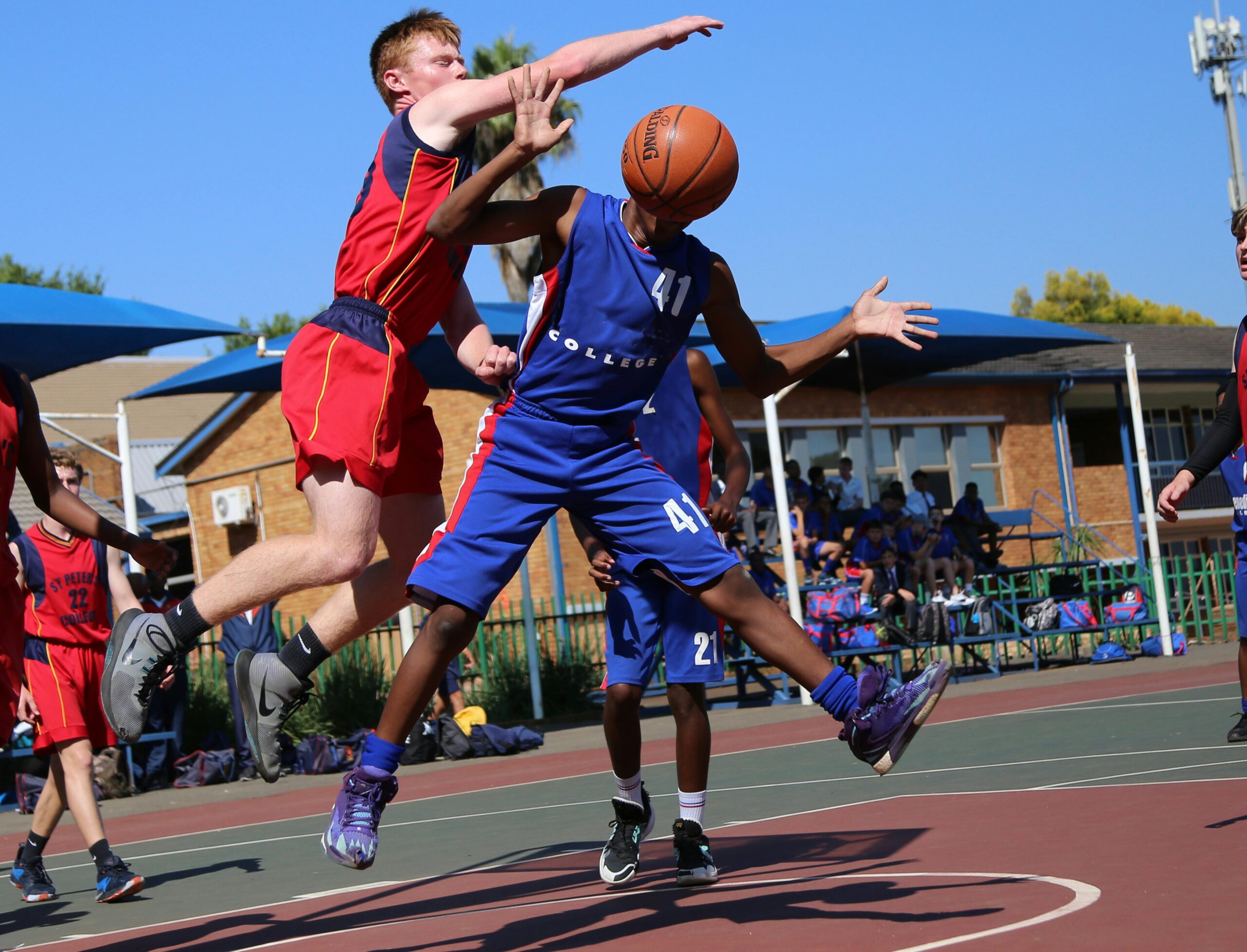College basketball betting on totals — sounds straightforward, right? You’re basically guessing whether the combined score will be over or under a certain number. But here’s the kicker: expert tips to maximise wins in this niche aren’t exactly splashed all over the internet. Why is no one talking about the subtle tricks that can turn your casual bets into serious cash? Maybe it’s just me, but the whole world seems obsessed with point spreads and outright winners, while the college basketball betting on totals market quietly holds some of the juiciest opportunities. Not gonna lie, this surprised me too.
So what’s the deal with totals betting anyway? If you’ve ever wondered “how do I actually get an edge on totals bets?” or “why do some games smash the over while others crawl under the line?”, you’re in the right place. This isn’t your typical “bet the favourite” spiel — we’re diving into college basketball totals strategies that make you think twice before placing that next wager. You’d think this would be obvious, right? But the truth is, understanding pace, defensive stats, and even how coaching styles impact scoring can massively influence your success. And yep, that’s just the tip of the iceberg.
So buckle up, because what if we’ve been wrong all along about the best way to bet on college basketball? Forget blindly following the crowd and start focusing on the often-overlooked world of totals betting tips that actually work. Whether you’re a newbie or a seasoned bettor, there’s something here that’ll make you question your entire approach — and hopefully, boost your win rate while you’re at it. Ready to crack the code? Let’s get into it.
How to Master College Basketball Totals Betting: 7 Expert Strategies for Maximum Profits
Alright, so here we are, diving headfirst into the wild world of college basketball totals betting. Honestly, if you told me a few years ago I’d be obsessing over points totals instead of just who wins or loses, I’d probably have laughed in your face. But here we are, because apparently, there’s a whole art (and science, if you wanna get fancy) to mastering this stuff. So, “How to Master College Basketball Totals Betting: 7 Expert Strategies for Maximum Profits” — yeah, that’s the dream, innit? Let’s have a proper butcher’s at this, and maybe, just maybe, you’ll walk away knowing a bit more than when you started. Or not. Who knows.
Why College Basketball Betting on Totals Even Matters
First off, what the heck is “betting on totals”? Simply put, it’s wagering on whether the combined points scored by both teams in a game will be over or under a number set by the bookmakers. Sounds straightforward, right? Well, it kinda is, but also, not really. These totals fluctuate based on team form, player injuries, pace of play, and sometimes, just pure randomness (because, let’s face it, basketball is chaotic).
Anyway, what was I saying again? Oh yeah, totals betting is popular because it lets you sidestep the usual “who wins” drama and focus on the game’s pace and scoring tendencies. Plus, it can offer better value bets when you’ve done your homework — or stumbled across a sneaky edge.
7 Expert Strategies for Mastering College Basketball Totals Betting
Study Pace of Play Like It’s Your Job
College basketball teams play at wildly different speeds. Some grind out slow, defensive battles while others run up and down the court like maniacs. Knowing which teams push the tempo and which slow it right down helps you predict if a game will be high-scoring or a snoozefest.Check Injury Reports Religiously
Missing a star scorer or a defensive anchor can seriously skew the totals. I mean, duh, right? But you’d be surprised how often people miss this. Even bench players stepping up can change the game’s scoring dynamics.Home vs. Away Performance
Some teams are beasts at home but fold under pressure away. The crowd, travel fatigue, and emotional vibes can all affect scoring totals. Not sure why this matters, but it does. Trust me.Look at Historical Matchups
Sometimes teams just “click” or “clash” in certain ways. Maybe they always play high-scoring games against each other or tend to slow the pace down. Digging into these past encounters can give you hints.Mind the Line Movements
Bookmakers adjust totals as info comes in. If the line moves significantly, it’s often a sign that sharp bettors are piling on one side. Following these shifts can be like riding the wave instead of fighting it.Don’t Ignore the Weather (Well, Sorta)
Okay, basketball’s indoors so weather shouldn’t matter. But if you’re betting on teams from regions hit by storms or travel chaos, their performance might dip unexpectedly. Bit of a stretch, maybe, but worth a thought.Bankroll Management, Seriously
This isn’t just about picking the right totals, mate. If you blow your entire budget chasing “sure things”, you’ll be left in the gutter. Set limits, keep track of your bets, and don’t go all in on a hunch.
Quick Table: Comparing Totals Betting to Traditional Moneyline Bets
| Aspect | Totals Betting | Moneyline Betting |
|---|---|---|
| Focus | Combined points scored | Which team wins |
| Complexity | Moderate (need stats & trends) | Simple (win or lose) |
| Potential Profit | Can offer better odds in niche games | Typically lower odds |
| Risk Level | Depends on knowledge of pace & form | Often influenced by favourites |
| Strategy Required | High (analysis of multiple factors) | Moderate |
Sorry, had to grab a coffee — anyway…
So, if you’ve made it this far without falling asleep, well done. Honestly, sometimes it feels like trying to crack an ancient code that only statisticians and caffeine-junkies understand. But hey, that’s the thrill, isn’t it? Betting on college basketball totals isn’t just about luck; it’s about piecing together clues from stats, watching games (even if you’re half-watching while scrolling Twitter), and making educated guesses.
One last thing — avoid those “too good to be true” systems promising you’ll “double your money overnight.” Seriously, who even came
Top 5 Proven Tips to Boost Your Wins on College Basketball Over/Under Bets
Alright, so you wanna get better at college basketball betting on totals, huh? Specifically, those over/under bets that people swear by like it’s some magic formula to become rich overnight. Well, I’m here to spill the beans on the top 5 proven tips to boost your wins on college basketball over/under bets. But fair warning: this isn’t some perfect guide from a betting guru — more like a slightly tired, possibly distracted ramble from someone who’s wasted a few quid and learnt a thing or two. Also, I’m British, so expect some slang and the occasional “bollocks” or “mate” thrown in.
Why College Basketball Betting on Totals Still Matters
First off, if you’re wondering why anyone cares about betting on totals (aka the over/under), it’s because it’s one of the simplest ways to get your head around sports betting without obsessing over who wins or loses. Instead, you’re guessing if the total points scored by both teams will be over or under a set number. Sounds simple, right? Well, it kinda is. But not really.
College basketball is mad unpredictable, and unlike the NBA, you get loads of variation in scoring because of different team styles, coaching tactics, and just plain old chaos. That means understanding totals can be a real edge if you know what to look for. And yeah, the sportsbooks know this too — so their lines are usually tight and often shift with last-minute info. Seriously, who even came up with this?
Anyway, what was I saying again? Oh yeah, let’s get into those tips.
Top 5 Proven Tips to Boost Your Wins on College Basketball Over/Under Bets
Look Beyond the Obvious Numbers
Don’t just eyeball the average points per game and call it a day. You need to dig into pace statistics — how fast or slow a team plays. For example, a team like Houston might play slower, grinding the clock down, while someone like Gonzaga is more up-tempo. This affects total points massively. So, if two slow-paced teams meet, the under might be your mate, but if it’s two fast-paced teams, over could be the way to go. Easy in theory, tricky in practice.Check Recent Trends, But Don’t Obsess
Teams go through hot streaks or cold slumps, and that impacts scoring. But beware: recent games might not be representative if injuries or changes in lineups happen. So yeah, look at last 5 games or so, but keep an eye on the bigger picture too. I mean, you don’t wanna bet over just because the last game was a crazy shootout if now the star player’s out injured.Weather? No, Wait — Venue Matters
This one sounds daft but trust me, where the game’s played can affect totals. Home advantage isn’t just about winning — it can speed up or slow down the game. Some arenas have smaller courts or different crowd vibes that mess with players’ rhythms. Plus, travelling teams can be knackered, which sometimes leads to sloppy games and more points. Weird, but true.Understand the Line Movement Like a Pro
Bookies adjust the over/under lines based on betting volume and new info. If you see the line moving up from 140 to 145, it might mean the public is pushing the over, or maybe a key defensive player is injured. Tracking these shifts can give you clues about hidden factors. It’s a bit like reading tea leaves, but with numbers. Or maybe it’s just overthinking, who knows?Don’t Ignore the Stats That Don’t Seem Important
Stuff like free throw rates, turnovers, and fouls can affect total points. More fouls usually mean more free throws, which add to the score. Teams that turn the ball over less might have longer possessions, leading to fewer scoring chances and lower totals. So yeah, it’s a bit of a numbers game — but also kind of an art.
College Basketball Betting On Totals: Expert Tips To Maximise Wins
Alright, now I’m gonna be honest — I had to step away for a sec because, um, coffee emergency ☕. Sorry, had to grab a coffee — anyway…
If you want to get serious about college basketball betting on totals, experts recommend mixing your analysis with these practical moves:
Use Multiple Data Sources: Don’t rely on just one site or app. Compare stats from NCAA official pages, sports analytics sites, and even fan forums. Sometimes the weirdest info can be the most insightful.
Manage Your Bankroll Like a Boss: Betting on totals can feel like a rollercoaster. Set limits on how much you bet per game so a bad run doesn’t wipe you out. I swear, it’s tempting
College Basketball Totals Explained: Insider Secrets to Predicting Game Totals Accurately
College Basketball Totals Explained: Insider Secrets to Predicting Game Totals Accurately
Alright, so here we are again, diving into the wild world of college basketball betting on totals. Honestly, it’s one of those things that seems straightforward but somehow gets way more confusing the deeper you go. Totals, aka over/under bets, are basically wagers on the combined score of both teams in a game — you’re betting whether the final score will be over or under a set number that the bookmakers come up with. Simple, right? Well, yeah, but also no.
Why College Basketball Totals Matter (Or Do They?)
First off, why bother with totals at all? I mean, you could just bet on who wins the game and call it a day. But no, people like the thrill of predicting whether the teams will score more or less than some random number. It’s kinda like trying to guess how much your phone bill will be but with basketballs and points. Not really sure why this matters, but totals betting offers a different angle — it’s less about which team is better and more about how the game flows.
For example, a fast-paced team combined with a slow, defensive squad might produce a middling total. Or two offensively challenged teams might keep things under a low total. The tricky bit is figuring out what the bookmaker’s number actually means and how likely teams are to meet, beat, or fail it.
What Are Totals Exactly? The Basics
In case you’re completely new to this, here’s a quick rundown of how college basketball totals work:
- The bookmaker sets a total points line for a game (e.g., 135.5 points).
- You bet whether the actual combined score will be over or under that number.
- If the final score is exactly the same as the total line (very rare with halves), the bet is a push and your stake is refunded.
- Otherwise, you win or lose based on the final combined points.
Seems straightforward but remember, college basketball games can be wildly unpredictable. Injuries, pace changes, and even weird referee calls can swing scores massively. Seriously, who even came up with this?
Insider Secrets To Predicting Game Totals Accurately
Okay, now to the juicy stuff. How do the pros actually guess these totals? Spoiler: it’s not magic, just lots of number crunching and gut feelings. Here’s some insider tips that might actually help:
Look at Pace Stats
Pace is everything. It measures how many possessions a team uses per game. More possessions usually mean more scoring opportunities. For example, a team averaging 75 possessions per game against another with 65 probably leads to a higher total.Check Offensive and Defensive Efficiencies
Points per possession (PPP) stats show how efficient a team is at scoring and defending. High offensive and low defensive numbers usually push totals over.Consider Recent Trends & Injuries
A star player sitting out? That can tank scoring. Or maybe both teams have been playing slow, grind-it-out basketball recently. Context is king.Don’t Ignore the Matchup
Some teams just match up weirdly. Like a strong shooting team versus a poor perimeter defender could lead to a shootout.Weather? Nah, Not Here
Unlike football or baseball, indoor basketball isn’t affected by weather, so you can ignore that pesky factor.
College Basketball Betting On Totals: Expert Tips To Maximise Wins
Alright, so you’ve got the basics and some insider knowledge, but how do you actually turn that into wins? Here’s a few pro tips — but honestly, it still feels like a gamble half the time.
Shop Around for Lines
Different sportsbooks can offer slightly different totals. A half-point difference might mean you get a better edge. Like, 135.5 versus 136 points — seems trivial but can be the difference between winning or losing.Look For Value, Not Just Picks
Sometimes the numbers say “under” but the line is set too high, giving you value betting “under.” Don’t just blindly follow trends.Go Small With Your Stakes
College basketball can be chaotic. Don’t bet your rent money on one total unless you’re feeling reckless. Spread your bets.Watch Game Flow Live
If you’re into live betting, watching how the game’s pace changes can help you decide whether to jump on over or under during the match.Stay Updated on Line Movements
If the total shifts dramatically after it’s posted, there’s usually a reason — like late injury news or weather (well, not weather here, but in other sports). Worth paying attention to.
Sorry, Had to Grab a Coffee — Anyway…
Where was I? Oh
Why Betting on College Basketball Totals Is a Game-Changer for Smart Punters in 2024
Alright, so here we go — why on earth is betting on college basketball totals suddenly the hot ticket for savvy punters in 2024? I mean, you’d think with all the crazy stuff happening in sports betting, this would be old news by now, right? But nope, turns out this particular niche is shaking things up more than you’d expect. Maybe it’s just me, but there’s something oddly satisfying about trying to predict the combined points scored in a college game rather than just picking a winner or loser. Less pressure, more brain gymnastics? Who knows.
Why Betting on College Basketball Totals Is a Game-Changer for Smart Punters in 2024
Okay, so the basics first. When you bet on totals, you’re not fussed about who wins or loses, but how many points both teams rack up combined. Think over/under lines — simple enough, yeah? But here’s what makes it a bit of a game-changer this year: the sheer unpredictability of college basketball itself. With transfers, new coaching styles, and those pesky injuries, straight-up bets feel kinda risky. Totals let you hedge your bets on the pace and scoring rather than the messy drama of who’s actually on court.
Plus, the betting markets for totals have gotten way more sophisticated lately. Bookies and punters alike are crunching numbers on pace, efficiency, and even player matchups on a micro-level. So if you’re willing to put in the legwork (or, let’s be honest, some casual Googling at 2am), you can find some pretty juicy edges. Not really sure why this matters, but it’s like the perfect storm of stats nerds meeting gamblers. And who doesn’t love a good stats nerd?
College Basketball Betting On Totals: Expert Tips To Maximise Wins
Alright, let me throw some tips your way before you go all-in and blow your hard-earned cash on some random totals market. I’ll keep it real — none of this is foolproof, but hey, it’s better than winging it.
- Watch the tempo: Some teams play fast and loose, others slow and steady. Totals are heavily influenced by pace. For instance, a matchup between two top-tempo teams will likely hit the over.
- Check recent trends: Don’t just look at season averages. Recent games can show you if teams are slumping offensively or if defences have tightened up.
- Weather the injuries: Key players missing can tank scoring (or sometimes force others to step up — but that’s riskier to predict).
- Consider venue: Home court advantage isn’t just for wins; it can impact pace and scoring too.
- Line shop like a hawk: Different sportsbooks might have slightly different totals lines; finding the right line can mean the difference between a win and a loss.
- Don’t get emotional: If you’re a fan of a team, try not to let that cloud your judgement on totals — easier said than done, I know.
Seriously, who even came up with this? It feels like a blend of maths homework and gambling, which is probably why it’s so addictive.
The Numbers Game: A Quick Look at How Totals Work in College Basketball
You know what, let’s slap a quick table here just to break down some rough averages because numbers help, right?
| Aspect | Typical Value (2023-24 Season) |
|---|---|
| Average combined points/game | Around 140-150 points |
| Average pace (possessions/game) | Roughly 70-75 possessions |
| Over/Under line variance | Usually ±5 points depending on matchup |
| Common winning margin on totals | Between 3-7 points |
So yeah, totals hover around that 140-150 combined points mark, but fluctuations depend on teams’ playing styles. Like when Duke meets UNC, expect fireworks (and probably a higher total). When two defensive-minded sides clash, totals dip, and that’s where you might snag a sneaky under bet.
Sorry, had to grab a coffee — anyway…
Back to the point, betting on totals isn’t just about guessing if teams will score more or less. It’s about reading the game’s rhythm, predicting how coaching tactics and player rotations affect scoring opportunities, and honestly, sometimes just feeling lucky. And while it sounds all technical and lawyer-like, it’s surprisingly fun when you start to see patterns emerge.
Also, fun fact: totals betting has been around for donkey’s years, but its rise in popularity in college hoops betting is tied to the explosion of live betting and real-time stats. It’s like the bookies finally figured out that punters want more options than just “who wins.”
College Basketball Betting on Totals: Wrapping It Up (Hopefully)
So, if you’re the kind of punter who
The Ultimate Guide to College Basketball Over/Under Markets: Avoid These Common Mistakes
Alright, so you wanna dive into the maddening, somewhat confusing world of college basketball over/under markets? Yeah, good on ya. It’s not like it’s rocket science, but somehow it feels like trying to read tea leaves while riding a rollercoaster. Anyway, here’s “The Ultimate Guide to College Basketball Over/Under Markets: Avoid These Common Mistakes” — or at least, my attempt at it before my brain melts.
Why The Over/Under Market Even Matters (Apparently)
So, college basketball betting on totals isn’t just about picking who wins or loses. Nope, the over/under (or totals) market is all about guessing whether the combined points scored by both teams will be above or below a certain number set by the bookmakers. Sounds straightforward, right? You’d think so. But, as I found out, it’s more slippery than you’d expect.
Historically, these markets became popular because people got bored of just betting on winners and losers. Plus, it lets you focus on scoring trends, which can sometimes be more predictable — or not. And honestly, with college basketball being so fast-paced and varied in style (think: defensive slugfests vs. point-fests), the totals markets can offer some juicy opportunities if you know what you’re doing.
Here’s a quick rundown of the basics:
- Over/Under Line: The bookmaker sets a predicted total points scored by both teams combined.
- Over Bet: You think the actual combined score will be higher.
- Under Bet: You reckon it’ll be lower.
- Push: When the actual total equals the line — you get your stake back, yay.
Not really sure why this matters, but these bets can sometimes be less influenced by the unpredictability of who wins the game because you’re focusing on points, not the outcome.
Common Mistakes in College Basketball Over/Under Markets (Avoid These at All Costs!)
Right, before you throw your money in, here’s what I’ve seen people mess up — including myself on more than one occasion (don’t judge):
- Ignoring Pace of Play: Some teams run like Usain Bolt on espresso, others drag their feet like it’s Monday morning. Not accounting for this can ruin your bets.
- Overvaluing Star Players’ Impact on Totals: Just because a team has a top scorer doesn’t mean more points overall. Defence can be a killer.
- Forgetting Home/Away Factors: Teams often play differently when at home versus on the road. Sometimes they score more, sometimes less. It’s a bit like how some people behave at family dinners vs. pubs.
- Chasing Losses Blindly: Betting more on the next game just to win back previous loses? Classic mistake. Spoiler: It rarely works.
- Ignoring Injuries and Matchups: If key players are out, or a team’s defence is particularly weak or strong against certain styles, it can swing totals dramatically.
Seriously, who even came up with the idea that just looking at averages is enough? It’s like watching a weather forecast and ignoring actual clouds.
College Basketball Betting On Totals: Expert Tips To Maximise Wins
Okay, so you want the juicy bits — the tips that might actually help you not lose your shirt. Here goes:
- Study Team Tempo: Look at possessions per game. Higher tempo usually means higher totals. But check if the opponent likes to slow things down.
- Analyse Recent Trends: Teams go through hot and cold streaks. Don’t just trust season averages; recent games tell a better story.
- Consider Overtimes: Games that go into OT can wreck your totals bets if you’re not prepared. Sometimes it’s better to avoid betting totals on likely OT games.
- Weather and Venue: For college basketball, probably less impact than outdoor sports, but some venues have weird effects on scoring (like altitude in Denver).
- Shop Around For Lines: Different bookmakers might have slightly different totals. Finding a line that suits your prediction can improve your edge.
- Use Advanced Stats: If you’re into that sorta thing, metrics like offensive efficiency, defensive efficiency, and effective field goal percentage can help see past the obvious.
Here’s a quick table I knocked up that might help you keep track:
| Factor | Impact on Totals Bet | What to Look For |
|---|---|---|
| Team Tempo | High tempo = higher totals | Possessions per game |
| Injuries | Key players missing can lower totals | Check lineup updates |
| Recent Form | Hot streaks = potential for over | Last 5 games scoring average |
| Matchups | Defensive vs offensive styles | Team defensive efficiency vs offensive |
| Venue |
Conclusion
In conclusion, betting on totals in college basketball offers an exciting and strategic way to engage with the sport beyond simply picking a winner. By focusing on the combined score of both teams, bettors can capitalise on their knowledge of team styles, pace of play, and defensive strengths. Understanding key factors such as recent team performance, injuries, and tempo is crucial to making informed decisions when wagering on totals. Additionally, shopping around for the best odds and lines across various bookmakers can significantly enhance potential returns. Whether you prefer betting on the over or the under, a disciplined approach and thorough research are essential to long-term success. As college basketball continues to captivate fans with its fast-paced action and unpredictable outcomes, exploring totals betting can add an extra layer of excitement to your experience. So, why not put these insights into practice and elevate your betting strategy on the next college basketball game?












